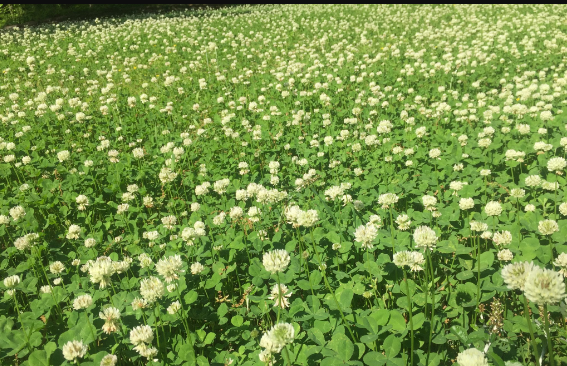If you’re looking for a low-maintenance, eco-friendly alternative to traditional grass, look no further than White Dutch Clover. This versatile plant is making a comeback in modern lawns due to its numerous benefits. From improving soil health to providing a lush, green carpet that stays vibrant all year round, White Dutch Clover seed is a game-changer for lawn enthusiasts.
What is White Dutch Clover?
White Dutch Clover (Trifolium repens) is a perennial plant that belongs to the legume family. Originally popular in lawns before the widespread use of synthetic fertilizers and herbicides, this hardy plant is experiencing a resurgence as more homeowners seek sustainable landscaping solutions.
Benefits of White Dutch Clover
Low Maintenance
White Dutch Clover requires less mowing than traditional grass. Its low-growing nature means you can enjoy a neat lawn with minimal effort.
Drought Resistant
Clover is incredibly resilient during dry spells. Its deep root system allows it to access moisture far below the surface, ensuring a green lawn even during droughts.
Improves Soil Health
As a legume, White Dutch Clover has the unique ability to fix nitrogen from the air into the soil. This natural fertilization process enriches the soil, reducing the need for chemical fertilizers.
Pest Deterrent
Clover is known to attract beneficial insects that prey on common lawn pests. This natural pest control method helps maintain a healthy, vibrant lawn without the need for harmful pesticides.
Erosion Control
The extensive root system of White Dutch Clover helps prevent soil erosion. It’s an excellent choice for slopes and areas prone to washout.
Aesthetic Appeal
With its lush, green foliage and delicate white flowers, White Dutch Clover adds a beautiful, soft texture to your lawn. It stays green throughout the year, providing a consistently attractive appearance. Learn more about white dutch clover here: https://www.naturesseed.com/grass-seed/clover-seeds-lawn-additive/white-dutch-clover/
How to Plant White Dutch Clover
- Choose the Right Time:
- The best time to plant White Dutch Clover is in the early spring or late summer. This gives the seeds enough time to establish before extreme weather conditions set in.
- Prepare the Soil:
- Clear the area of any debris, weeds, and existing grass. Loosen the top layer of soil to ensure good seed-to-soil contact.
- Sow the Seeds:
- Evenly distribute the seeds across the prepared area. Mix the seeds with sand or soil for best results to ensure uniform coverage.
- Watering:
- Keep the soil moist until the seeds germinate. Once established, White Dutch Clover is relatively drought-resistant, but regular watering will promote lush growth.
- Maintenance:
- Mow the clover to a height of about 3 inches. This encourages healthy growth and helps control weeds. Over time, the clover will create a dense mat that suppresses weed growth naturally.
Integrating White Dutch Clover into Your Lawn
You can choose to plant White Dutch Clover as a monoculture lawn or mix it with traditional grass. When mixed with grass, clover fills in gaps and provides a more resilient lawn. It also reduces the need for additional fertilization, as it naturally enriches the soil with nitrogen.
Conclusion
White Dutch Clover is an excellent choice for those looking to create a sustainable, low-maintenance lawn. Its numerous benefits, including improved soil health, drought resistance, and natural pest control, make it an eco-friendly alternative to traditional grass. Whether you’re starting a new lawn or enhancing an existing one, consider White Dutch Clover seed to achieve a beautiful, sustainable landscape.

